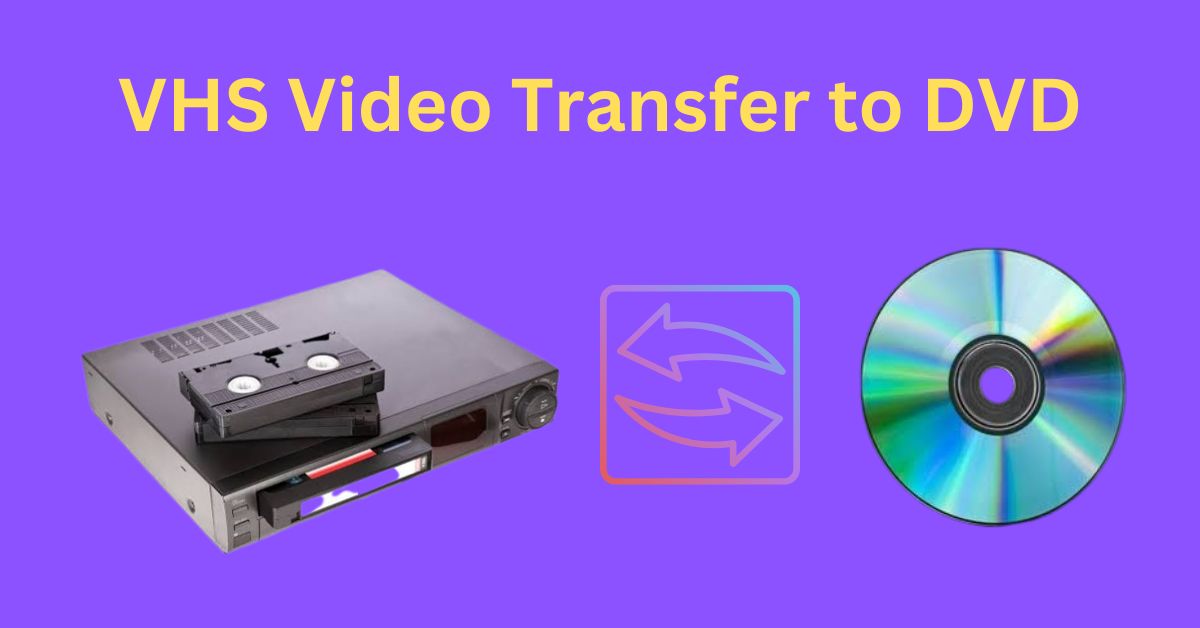Do you have old family videos on VHS tapes?
Maybe your parents or grandparents have a stack of them in the basement, filled with memories like birthdays, weddings, and holidays.
The problem is that VHS tapes don’t last forever, and it’s becoming harder to find players to watch them.
That’s why people are turning to VHS video transfer to DVD.
In this article, we’ll explain what this process means, why it’s helpful, and how to get started.
What Is VHS Video Transfer to DVD?
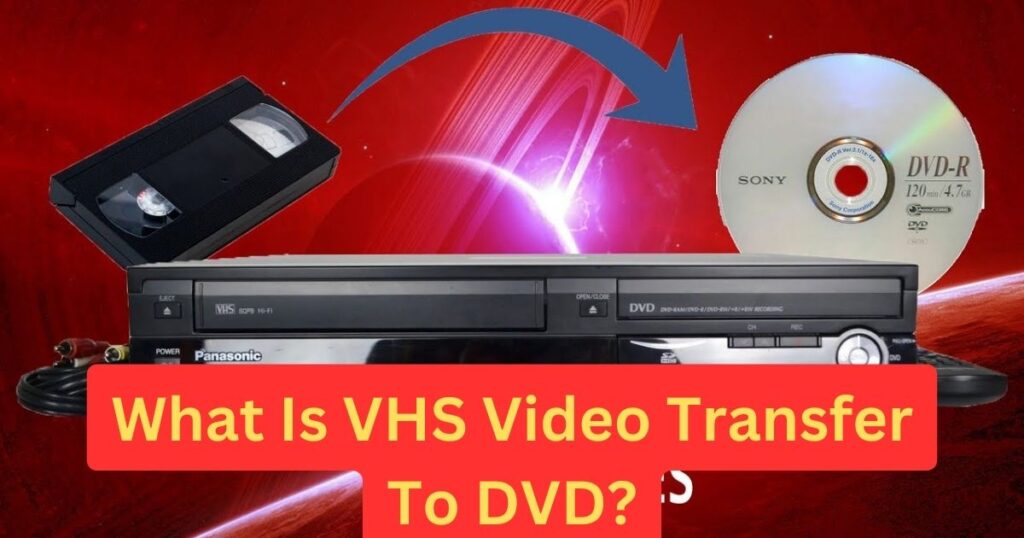
VHS video transfer to DVD is the process of copying video recordings from VHS tapes onto DVDs.
A VHS tape is an old type of cassette that holds video, while DVDs are compact discs that can store video in a digital format.
DVDs are much easier to use, and they don’t wear out like VHS tapes.
With VHS video transfer to DVD, you can take those old tapes and turn them into DVDs.
This way, you can keep your memories safe and make sure they’re easy to watch on more modern devices like DVD players or even computers.
Why Do People Need VHS Video Transfer to DVD?
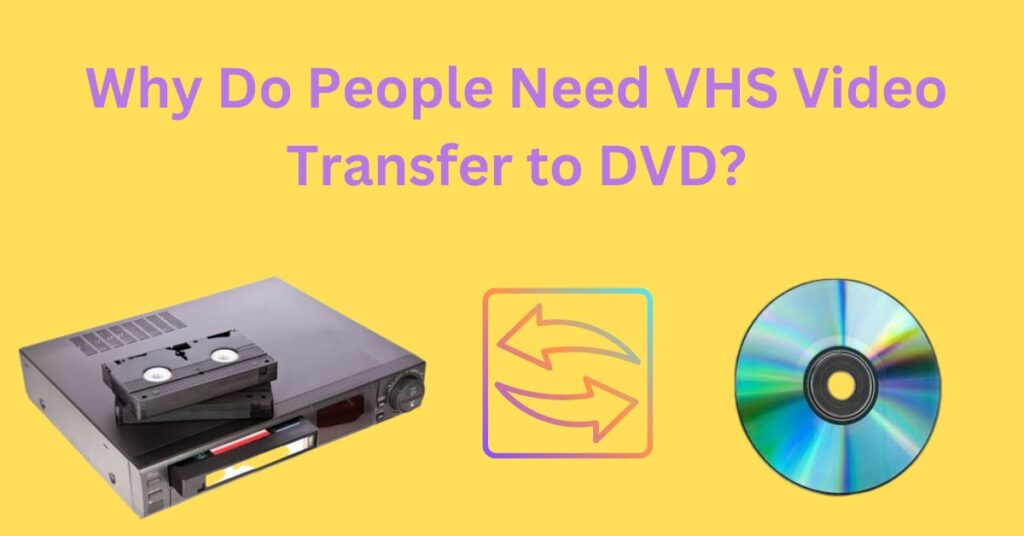
VHS tapes have several problems, especially as they get older:
- VHS Tapes Deteriorate Over Time: The video quality fades, and eventually, the tape can stop working altogether. By transferring them to DVD, you’re saving the video before it’s too late.
Also Read: Convert Photographic Slides to Digital
- VHS Players Are Hard to Find: VHS players, or VCRs, were once common, but now they’re outdated. Many people don’t have VCRs anymore, so transferring to DVD makes the videos playable again.
- DVDs Are Easier to Store: DVDs take up less space and are more durable than VHS tapes, which can be bulky and prone to damage.
This is why VHS video transfer to DVD has become popular—it’s a way to preserve memories and keep them accessible for years to come.
How Does VHS Video Transfer to DVD Work?
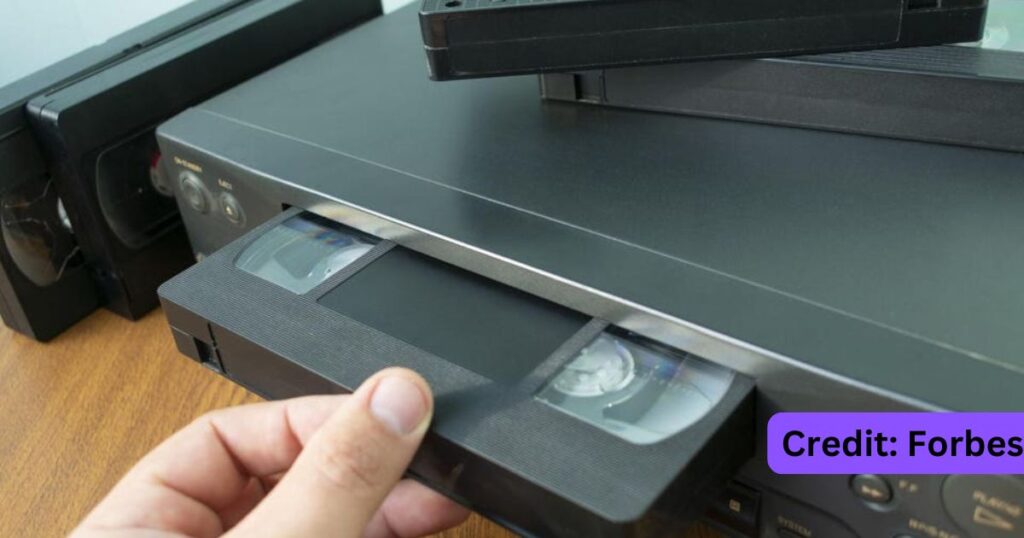
Transferring VHS to DVD can be done at home or by a professional service. Here’s a quick look at the two main methods:
1. Using a VHS-DVD Combo Player
Some devices are made specifically for VHS video transfer to DVD.
These combo players have a slot for a VHS tape on one side and a DVD burner on the other.
With this device, you can play the VHS tape and record it onto a DVD at the same time.
Also Read: How to Convert DVDs to Memory Sticks
It’s one of the easiest ways to transfer your tapes if you have a lot to do at home.
Steps for Using a Combo Player:
- Insert the VHS tape into the player.
- Insert a blank DVD into the DVD side.
- Press the “Record” button to start transferring.
- Wait for the process to finish, and you’ll have your DVD ready.
2. Using a Professional VHS to DVD Transfer Service
If you don’t have a combo player or if you prefer not to do it yourself, you can take your tapes to a professional service.
These services can be found online or at photo and video stores.
They handle everything for you, often providing high-quality DVDs with added features like chapters, labels, or even digital copies for use on computers or smartphones.
Steps for Using a Professional Service:
- Take or mail your VHS tapes to the service provider.
- Choose any special options (such as adding labels or chapters).
- Wait for the service to finish and receive your DVDs.
Professional services are a great choice for people who want the best quality but don’t have the equipment or time to transfer VHS to DVD on their own.
Benefits of VHS Video Transfer to DVD
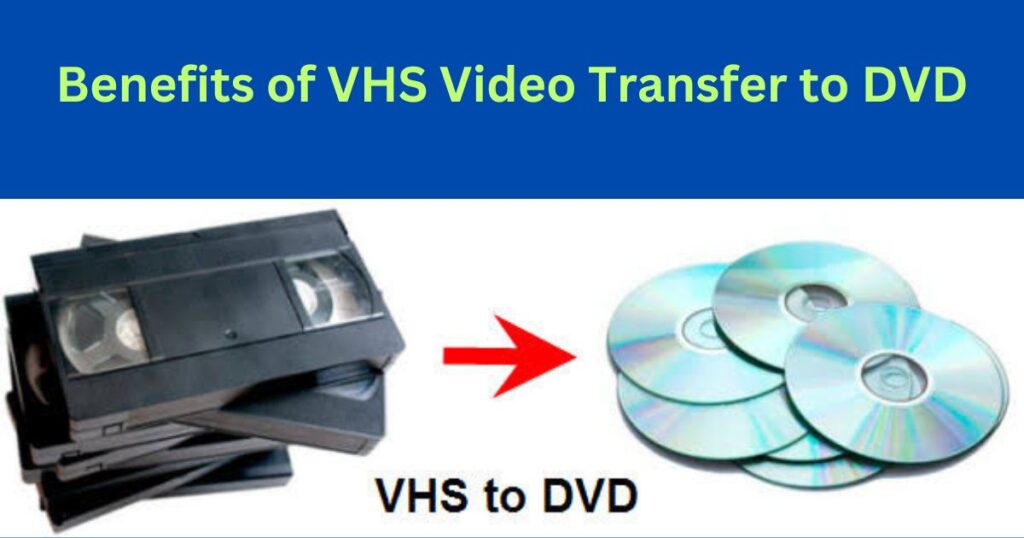
Why is VHS video transfer to DVD so beneficial? Here are some of the biggest reasons people choose to make the switch:
- Protects Precious Memories: VHS tapes can get damaged or lost, but DVDs keep your videos safe for many years.
- Easy to Watch on Modern Devices: Many people don’t have VCRs anymore, but almost everyone has a DVD player or computer that can play DVDs.
- Better Quality: While VHS tapes lose quality over time, DVDs keep a more stable and clearer image.
- Convenient for Sharing: You can make copies of DVDs for family and friends, making it easy to share your memories with loved ones.
Who Should Consider VHS Video Transfer to DVD?
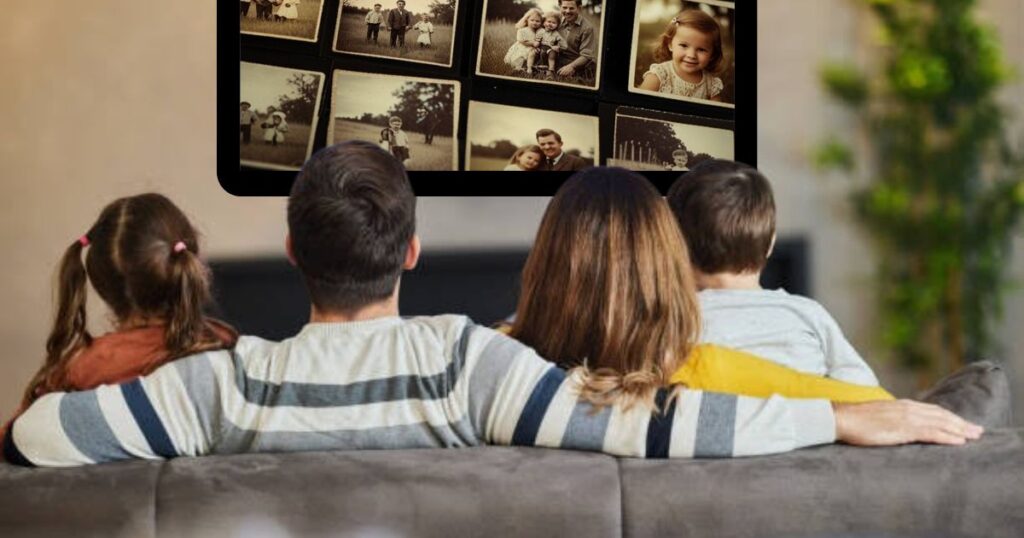
VHS video transfer to DVD is ideal for anyone who has old tapes they want to keep safe and accessible. Here are a few examples of people who can benefit from it:
Also Read: Are There Companies Who Can Change DVD to Memory Stick?
- Families with Old Home Movies: Family gatherings, birthday parties, and holiday celebrations can be preserved on DVD for future generations to watch.
- Event Videographers: People who recorded events like weddings or graduations on VHS can convert them to DVD to share with others.
- Schools and Organizations: Many schools and clubs used VHS for activities and events. Transferring these tapes can help preserve a community’s history.
Tips for Keeping Your DVDs Safe
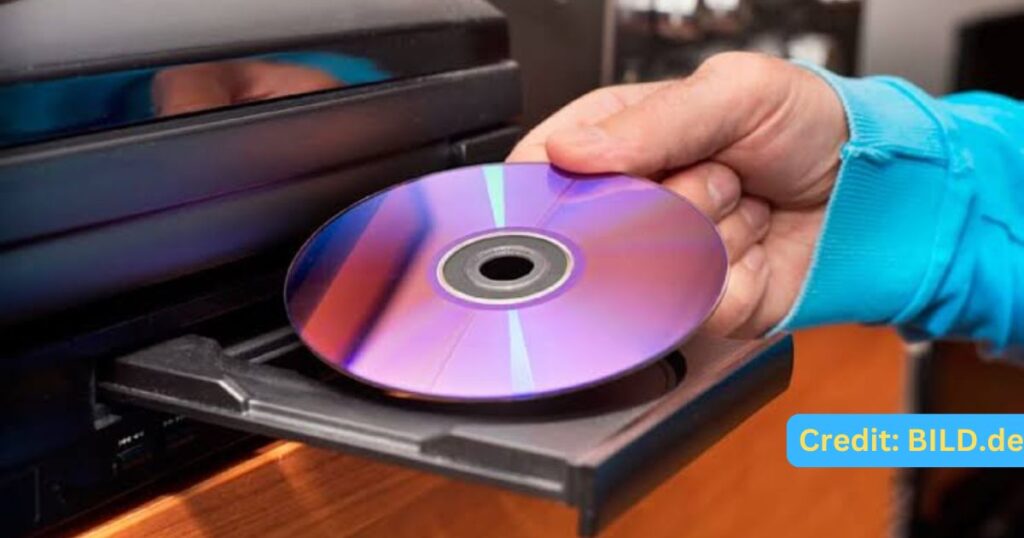
After you complete your VHS video transfer to DVD, it’s essential to store your new DVDs carefully. Here are some tips to keep them in good condition:
- Store DVDs in a Cool, Dry Place: Avoid heat, humidity, and direct sunlight to prevent damage.
- Handle DVDs by the Edges: Touching the surface can leave fingerprints or scratches that make them hard to play.
- Make Backup Copies: If you have a lot of precious memories on DVD, consider making extra copies or digital files in case something happens to the original.
Final Thoughts on VHS Video Transfer to DVD
Transferring VHS to DVD is a smart way to protect your memories and make sure they’re easy to watch. With VHS video transfer to DVD, you’re taking an important step to keep videos safe and share them with family and friends. Whether you do it yourself or use a professional service, this process helps make sure that your favorite moments will be there for years to come.
